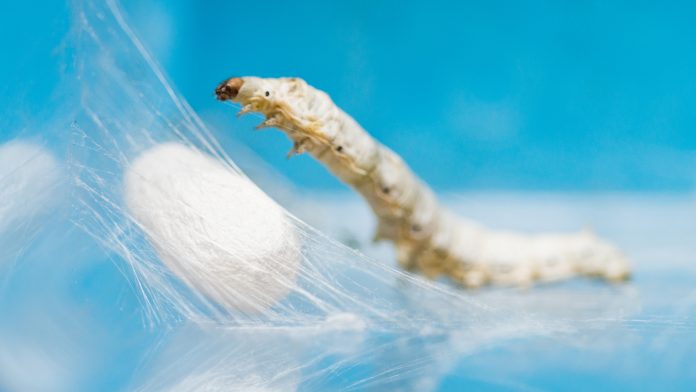A research project, funded by Horizon 2020, has developed a biobased polymer using silks from spiders and worms to potentially complete the existing thermoplastics process.
Spiders and silkworms can create a high performance natural fibre that is not only degradable but also elastic in texture. This process is what inspired the FLIPT project. Funded by the Horizon 2020 EIC funding pilot, the FLIPT project aims to understand and reverse engineer natural aquamelts in order to establish a completely new bioinspired paradigm for polymer processing.
According to the FLIPT project, not only will this be a completely disruptive technology platform, “it also promises to be orders of magnitude more energy efficient and ‘greener’; being performed at room temperature and water being the only direct by-product of processing.”
The fibres created by the FLIPT project will not only have an impact on the textile sector, for which they were created, by also on every aspect of the industry sector and wider society. Due to the very low CO2 emissions and the minimal use of natural resources, the newly created polymer processing will dramatically reduce the energy consumption while also reducing the production of plastic.
The colder natural silks get, the stronger they become
According to a report in Materials Chemistry Frontiers, the colder natural silks get, the stronger they become. This could indicate further adaptations and designs of new families of natural and silk inspired filaments for applications in extreme cold conditions such as space.
According the European Union’s Community Research and Development Information Service (CORDIS): “Currently there is no truly sustainable pathway for the production of plastics, an industry which in the EU employs 1.45 million people, has a turnover of €89B but consumes ~778GWh of energy per annum.
“This is an opportunity for industry with pressure increasing to develop low energy, high-quality, wet-processing techniques for consumer products. Here Nature may provide us with inspiration, as over hundreds of millions of years, it has evolved numerous strategies for efficient processing of its materials.”







